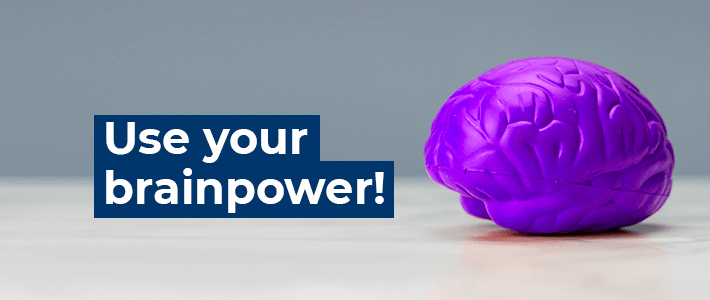Learning something new such as a language, a digital competency or a sport takes repetition and practice. But why? In this article, we discuss how principles of neuroscience can be used to optimize learning. This should help you not only choose the right online learning program but also how to organize your study sessions for success.
Learning must become a habit
Working, or active, memory is limited. We’re only able to process a certain amount of information at one time. It’s for this reason that we may find ourselves feeling mentally blocked when we receive too much information at once. Think of when you learned to parallel park, for example. Alternating between the gas pedal and the break. Surveying the space over your shoulder and through the rear view mirrors. Watching out for other cars and obstacles. Maneuvering the wheel in reverse. It’s a lot to process at first.
When we learn something new, the neurons in our brain create links, which then connect to one another promoting ideas, thought patterns and memories. These connections are activated while we are sleeping. The more we have the same thoughts or preform the same actions, the stronger the neural pathways become. Long term memory is then able to access the required information and know-how when we need them.
![]()
So what does all this mean in terms of education? It means that repetition helps to strengthen and reinforce these connections over time, preventing new ideas and habits from fading – just like regular exercise keeps our bodies in good shape. The same goes for habits and the actual process of learning. The more often we learn something new, the better we become at learning.
Stimulate different senses to improve learning
When it comes to making connections between ideas, our brain reacts differently depending upon which of our five senses are involved. Any sensory input including sight, sound, smell, touch or taste can spark a connection. Providing stimuli across the senses will reinforce memory creation and retention.
When applying this concept to modern education, digital tools provide valuable assistance to facilitate learning, stimulating different senses via videos, quizzes, infographics, online forums, and mentor sessions. This kind of dynamic approach leads to a higher success rate of information retention. When it comes to choosing professional training online, it is essential to choose a platform that engages a variety of your senses.

Avoiding distractions leads to better learning
Today we are confronted with far too many distractions throughout our day which can make concentration difficult. According to Gallup research, the amount of time we spend on a task before we are interrupted or move onto something else is around three minutes. “Multitasking” can overload our working memory and hinder our ability to retain new information.
While a few occasional interruptions can actually help stimulate creativity, (for example talking to a colleague can help us come up with new ideas), too many interruptions can overload our working memory, and slow down our progress.
There are a few solutions to help with this problem:
- Have dedicated workspaces
- Plan short breaks to give your work a rhythm
- Try to minimize interruptions in order to maximise concentration
- Put your phone on airplane mode, install apps that can block social networks during work time, etc.
Take a look at our course “Learn how to learn” which helps develop your learning abilities as well as those of your teams! Also check out our many associate’s and bachelor’s-level Career Paths that employ a multi-sensory approach to learning.



